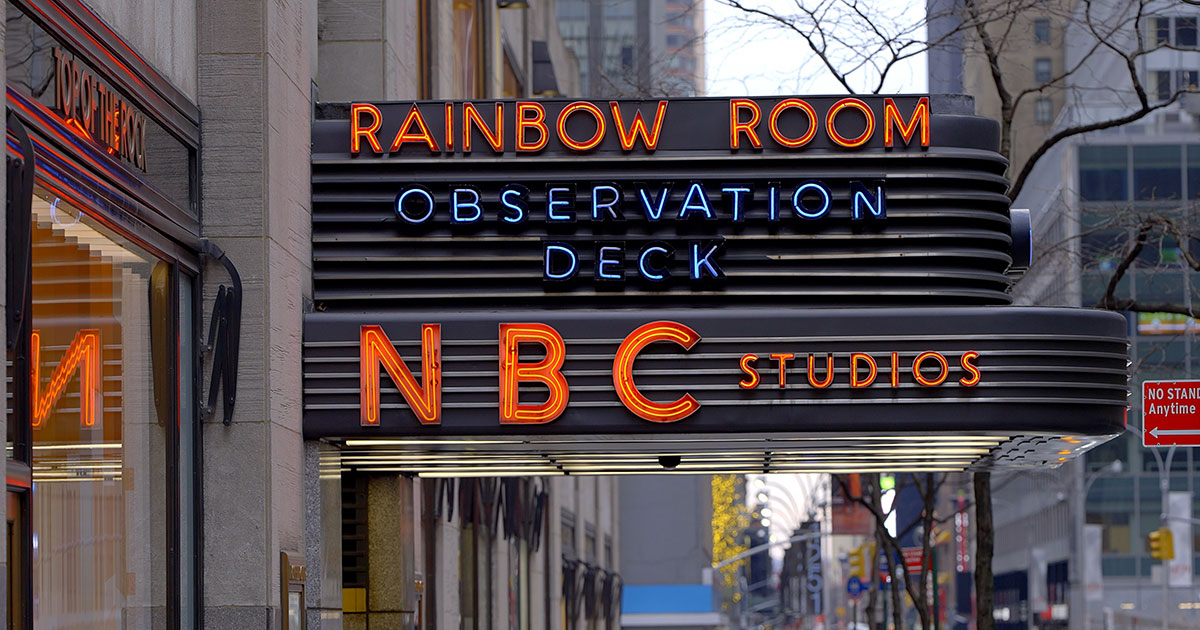Live from New York: What 50 Years of SNL Teaches about Entrepreneurship

From its very beginning in 1975, “Saturday Night Live” has been different. Just the fact that it’s broadcast late on Saturday night, in a sleepy slot far from prime time, signals that this is a venture that’s not afraid to go for it and try new things.
“You talk about taking a risk. They scheduled the show for Saturday night,” says Jeff Shay ’87, MBA’91, professor of entrepreneurship at Babson College. “What is the volume of TV watching on Saturday nights? Saturday night is a tough spot to attract viewers.”
This season, SNL’s 50th, marks a milestone for a program that began as a rebellious upstart and became, over time, an institution. A longtime fan of the show, Shay reflects on what has made SNL such a resilient and successful program, one that still has a touch of the entrepreneurial spirit.
Differentiate from the Start

As a new type of TV program, SNL was a startup of a sort. Instead of following the template set by Johnny Carson, the legendary Tonight Show host who held court over late nights Monday through Friday for years, SNL pursued boundary-pushing and topical sketch comedy that was done live.
“If they copied Johnny Carson, you wouldn’t have anyone watching,” says Shay, who serves as chair of the Global Entrepreneurship Research Association, the organization that oversees the Global Entrepreneurship Monitor. “They did what we teach. You have to be a differentiated product.”
For its very first show, which is depicted in a new movie in theaters now called Saturday Night, SNL was hosted by comedian George Carlin. That’s a telling choice, Shay says. Instead of picking a safer or more traditional star, SNL went with a host known for edgy, censor-challenging humor. “Selecting George Carlin as host signaled that this would be different,” Shay says.
Hire Talented People
When building a venture, entrepreneurs don’t necessarily want to hire employees who are extremely experienced or well-known. Instead, they fill their staffs with passionate, hard-working, talented people who they can develop over time.
That’s exactly the strategy that SNL employs. Many, many famous people have been in SNL’s cast in its 50 seasons, but they typically weren’t famous before they came to the show. SNL is where they came into their own as performers.
“You can’t say they would have had the careers they had without the opportunity SNL provided,” Shay says. “You wonder where they would be without SNL.”
“They create a culture in which people are passionate about a common goal and are innovative. They are pushing the envelope and are not afraid to speak up and offer new ideas.”
Jeff Shay ’87, MBA’91, professor of entrepreneurship at Babson
Cast members who grow famous and accomplished during their stay at SNL typically leave for other opportunities, which means the show must hire more passionate, hard-working, talented people to replace them. To do so, the show follows another hiring strategy often employed by entrepreneurs—it looks to places proven to produce quality candidates.
If entrepreneurs are starting a high-tech company, for instance, they may look to hire people from Silicon Valley or Austin, Texas, while banking startups may seek candidates in New York City or Charlotte. “Those different pockets make it easier to identify candidates because there is such a concentration of specialized talent in one place,” Shay says. In a similar fashion, SNL looks to certain comedy and improv groups, such as Chicago’s Second City, to locate performers who can handle the show’s live-without-a-net spotlight.
Create a Comedy Incubator
Even with cast members departing and arriving from season to season, SNL has a durable risk-taking culture, one the cast and crew rely on. After each week’s episode, they have mere days to dream up new sketches and prepare for next Saturday’s show.
“They create a culture in which people are passionate about a common goal and are innovative,” Shay says. “They are pushing the envelope and are not afraid to speak up and offer new ideas.”
Shay says SNL is a bit like an entrepreneurial incubator, in which comedic ideas are developed and tested. “They float ideas and try to gain support for those ideas, so they’ll be part of the next show,” he says. “SNL has been the ultimate incubator or accelerator environment.”
Posted in Insights




